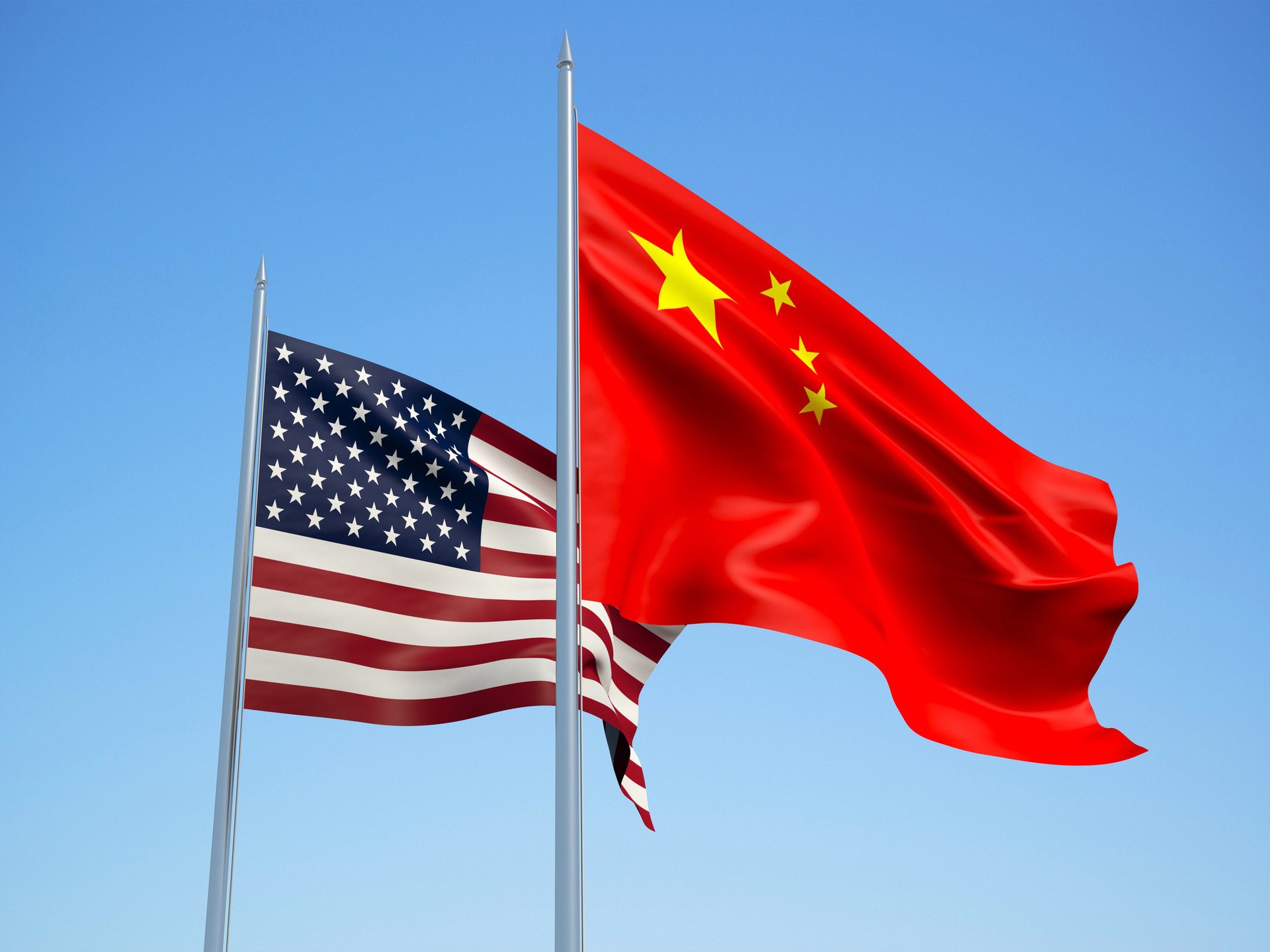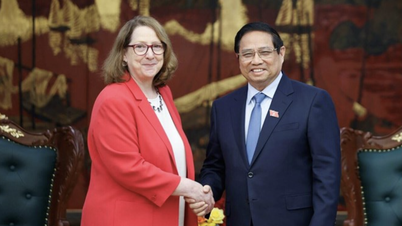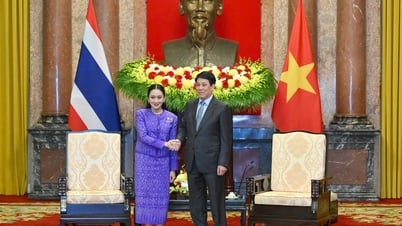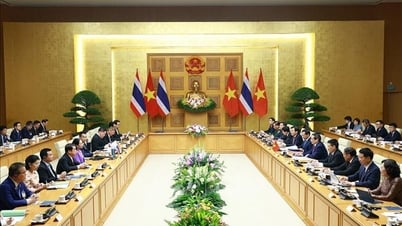(CLO) On Monday (February 10), China officially imposed new tariffs on US goods, a move in response to President Donald Trump's decision to increase import tariffs from China by 10%.
China has imposed a 15% tariff on coal and liquefied natural gas, while crude oil, agricultural machinery and large-engine cars will be subject to a 10% tariff. Analysts warn that the world's two largest economies risk a full-blown trade war if they cannot find a solution.
“According to the announcement of the Chinese government , China’s countermeasures will take effect on February 10,” Liu Pengyu, a spokesperson for the Chinese Embassy in Washington, said via email on Sunday night.

Illustration: X
Last week, Mr. Trump announced additional tariffs on Chinese goods, citing the need to control the flow of the drug fentanyl. Three days later, Beijing immediately responded with tariffs on American energy exports and agricultural equipment.
"This may just be the beginning of a new phase in the trade war. The situation could get very bad," said Zhang Yanshen, an expert at the China Center for International Economic Exchanges.
Some analysts had expected Washington and Beijing to negotiate to avoid escalating tensions. Trump initially said he would speak with President Xi Jinping, but after China responded, he said he was “in no rush” and stressed that the tariffs were just a “prelude” to more drastic measures to come.
China sees Mr Trump’s approach as coercive and unacceptable. “To reach a deal, there needs to be equal negotiations. It is unacceptable for the US to impose tariffs first and then ask for negotiations,” said Ma Wei, a researcher at the China Institute for American Studies (CASS).
But the scope of China’s retaliation remains limited. Beijing has launched antitrust investigations into U.S. tech giants like Google and Nvidia, but the tariffs cover a narrower range of goods than Washington’s measures.
The Trump administration has insisted that the main goal of the tariffs is to stop the flow of fentanyl from China. But Beijing observers say Washington may be seeking more concessions, including pressure on China on issues like Ukraine and TikTok.
Last Friday, Mr. Trump announced that he would announce “reciprocal tariffs” with the countries next week, while also suspending the policy of exempting low-cost shipments from China, directly affecting companies like Shein and Temu.
Experts predict that China will adopt a wait-and-see strategy rather than react immediately. Wendy Cutler, vice president of the Asia Society Policy Institute, said Beijing may be weighing the impact of US tariffs before making its next move.
However, some economists warn that if Mr. Trump actually imposes a 60% tariff as proposed during the election campaign, the Chinese economy will suffer heavy losses.
Hui Shan, chief China economist at Goldman Sachs, estimates that every 20% increase in tariffs would reduce China’s GDP by 0.7%. Beijing could take countermeasures such as devaluing the yuan or stimulating consumption, but GDP growth could still be affected by about 0.2 percentage points.
Meanwhile, some Chinese experts believe that American consumers will bear most of the cost. "China is not too concerned about the tariffs this time. Many companies have moved production abroad, and exports to the US now account for only 15% of China's total trade," said John Gong, a professor at the University of International Business and Economics.
Hoai Phuong (according to FT, WP, CW)
Source: https://www.congluan.vn/my-va-trung-quoc-chinh-thuc-buoc-vao-cuoc-chien-thuong-mai-post333804.html



![[Photo] Readers line up to visit the photo exhibition and receive a special publication commemorating the 135th birthday of President Ho Chi Minh at Nhan Dan Newspaper](https://vphoto.vietnam.vn/thumb/1200x675/vietnam/resource/IMAGE/2025/5/17/85b3197fc6bd43e6a9ee4db15101005b)
![[Photo] Prime Minister Pham Minh Chinh chairs meeting on science and technology development](https://vphoto.vietnam.vn/thumb/1200x675/vietnam/resource/IMAGE/2025/5/17/ae80dd74c384439789b12013c738a045)
![[Photo] More than 17,000 candidates participate in the 2025 SPT Competency Assessment Test of Hanoi National University of Education](https://vphoto.vietnam.vn/thumb/1200x675/vietnam/resource/IMAGE/2025/5/17/e538d9a1636c407cbb211b314e6303fd)































![[Photo] Nearly 3,000 students moved by stories about soldiers](https://vphoto.vietnam.vn/thumb/1200x675/vietnam/resource/IMAGE/2025/5/17/21da57c8241e42438b423eaa37215e0e)




































































Comment (0)